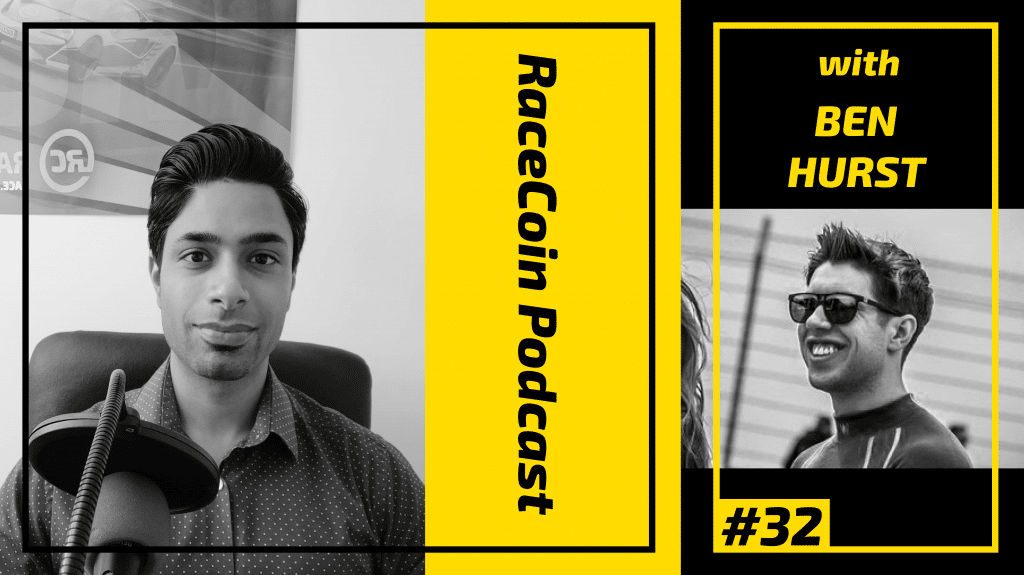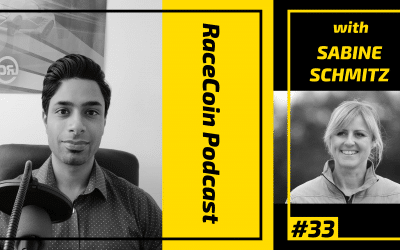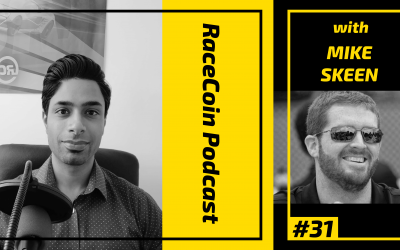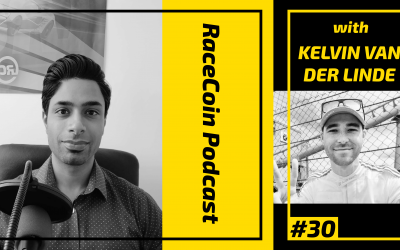#32 Ben Hurst – 3 tips: Get a notebook, hardwork and never give up
Host: Jai Shukla & Guest: Ben Hurst
Q1 — How did it all begin in Oakville, all the way to Canada, and now you’re the British GT?
The dad of Ben Hurst stirred up the whole process when he took him to Bridgestone racing Academy to try out for a racing license.
Ben Hurst got started in Formula Ford, here in Canada. He met one of the teams when he was at racing school there to get his racing license because Ben was just interested in trying. They eventually then won the championship after 3 years of persistence.
The team he was with In the UK got partnered with an F3 team during the Formula Ford festival of friends. So that’s kind of how Ben got introduced to everyone quickly in the UK. And that’s kind of how all his opportunities came out. So it’s kind of in one meeting after the next.
Q2 — You started off racing at age 16, did that affect how you saw the races approach the races?
Yes, especially in F3 you have to be willing to either go into that corner and either crashed your car into someone else or if they back off. But Ben Hurst is not wired to go into a corner and just either Yes, he is going to make it or he is going to be out of the race. Ben always want to finish races, no matter what.
Q3 — So have you considered endurance racing something like Lemans?
After watching it this year with Aston, Ben Hurst knew in my heart that there’s where he wants to be. Ben loves the level of preparation the teams go through. It’s like an F1 car, but it’s a GT car that goes for 24 hours.
Q4 — Between F3 and GT, what kind of differences are they in terms of pressure and atmosphere?
I think there’s more pressure because it’s not only my race weekend, it’s my teammates. Having a teammate does change the mentality a lot because you have to bring the car home for them because it’s their race weekend as well. It’s always rewarding to get the results on track in the morning after your teammates may have put in the late night to get the car ready morning.
Q5 — How is your relationship with your partner and what is your advice on how to create a bond with your partner?
For my partner, despite our different backgrounds, we have formed an efficient partnership. He is naturally quick but does not have racing experience. He helps me with qualifying for my outright pace and I handle the race starts.
To build a great relationship with your teammates, I’d advise you to spend time together, train together, learn how each they work.
Q6 — Do you feel that racing is something you will want to continue for the rest of your life?
Well, I’ve just graduated. And I took a degree that would help me with my racing career (Sports management) So I spent some time with the Renault F1 team, as a work placement in their sponsorship department learning how to how they get sponsors, I think that helped me.
Q7 — Can you share tips on how to get sponsorships?
Its hard work, get a lot of verified contacts (email/phone lines especially) who are interested in what you do.
Find the market you are in, look for companies that are interested in what you do. A blue ocean strategy will pay off big time.
On what companies expect in return: Some opt for increased sales of their cars or other organizing coaching events. Expectations vary from one company to another. Be it Aston Martin, Renato or Renault.
Q8 — How did the university degree help you expand your knowledge about sponsorships?
I did my dissertation on how sponsorship works in Formula One. I also leveraged on the experience of the Head of my management team with 20 years of experience. He moved from the mechanic side to the commercial side of racing.
Side by side, these two events expanded my knowledge on how sponsorships work.
I’d say that Formula 1 sponsorship is about Business to Business partnership and getting introductions.
Q9 — Would you like to go into Formula One at some point? Or is it La mans and hundred percent endurance racing?
I am 100% going to GT and endurance racing.
I want to build my career with support from either dealerships or manufacturers at this level and work my way up to a factory role with one of the manufacturers. Rather than trying to find the funding for F3 for another year, FIA F3, for another year and then F2.
Q10 — So how do you manage to deal with that pressure of actually going into the car and feeling like everyone’s ready and waiting for you to now deliver?
If you’re prepared, then you have nothing. That’s exactly my mindset. I think that the biggest thing I’ve learned is preparation. If I do my training, right, if I eat right, by the time I get to the race, I’m fully prepared and there should be nothing I’m got to think about other than going forward in the race that we’re at.
Q11 — What do you feel is the biggest difference between watching and driving?
So I think sometimes it looks a bit more intense on TV than it is in the car. Because you’re calm in the car, you’re just focusing on what you need to do. In the car, you’re focused on what’s directly in front of you and what’s directly behind you. And you count on your team at that point for what’s going on the bigger picture.
As a driver, I keep a lot of things out of my mind.
Q12 — Have you ever been out of the zone? Are you ever in a situation where you feel like, today’s just not my day when you’re driving? More so, can you share with us on how you get yourself in the zone?
I work hard at making sure I’m in the zone, I have a mine coach that works with my management company. And they help to keep that going system.
As a routine, I usually do a warm-up of two to three minutes, jump on the skipping rope. And then I will go and find my own space for about 20 minutes, 10 minutes and listen to music. And then I commonly go put my helmet on. By the time my helmets are on, I keep my visor closed because I want to. I’m in the zone by that point. When I get in the car, I get the radios plugged in, and then I’m talking to my team.
And it’s all 100% of focus to what you have to do after that.
Q13 — What 3 tips can you share with racing drivers wannabes to put them in a position to make their dreams come true?
- Work hard. I am a fan of fitness.
- Have a notebook at the track or when you go-karting. If there are bumps and stuff you notice on the track, or if there’s a line that works or a good overtaking spot, write it down. Make sure you know and write it down. It helps you.
- Don’t give up. You can’t give up you have to keep going.



